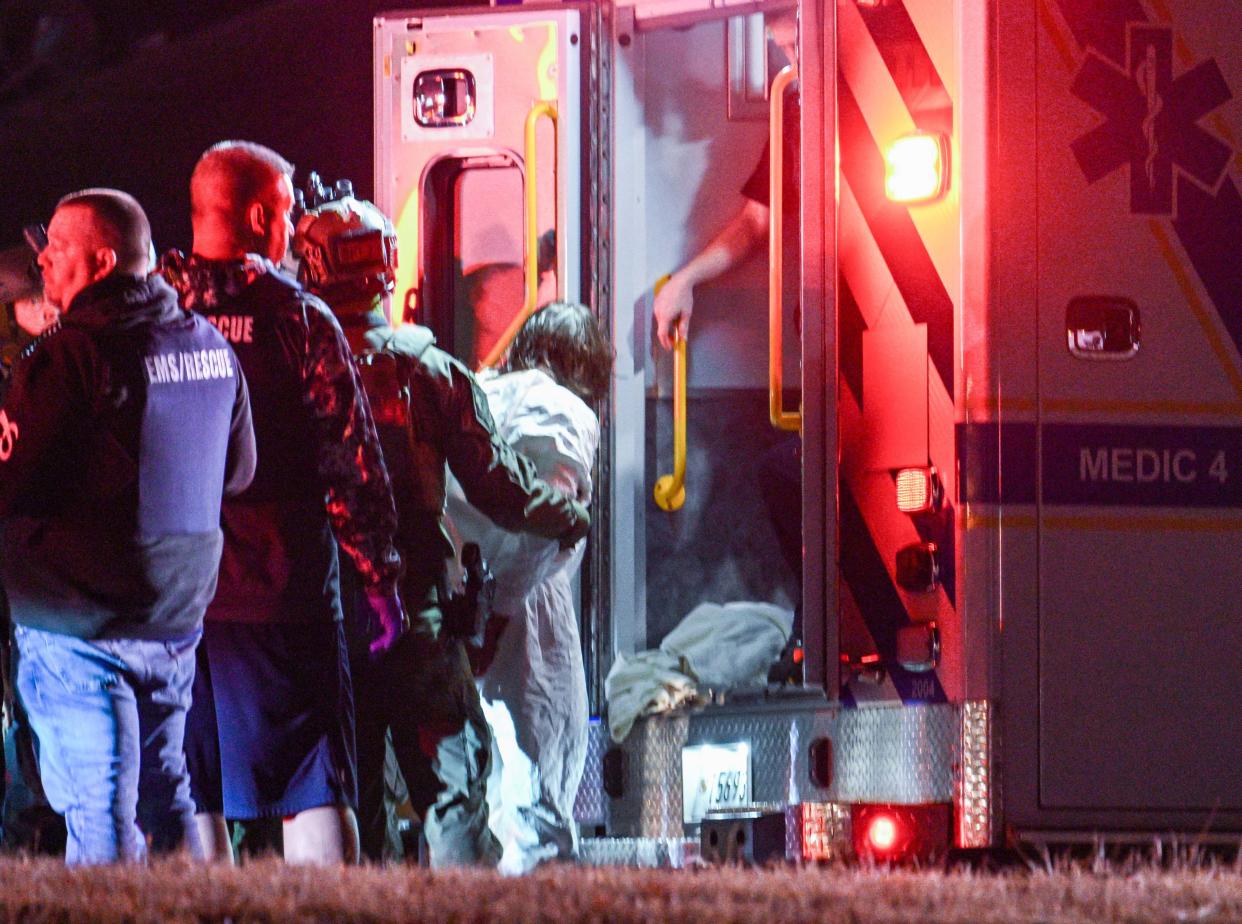Baltimore County judge chastises prosecutors for evidence missteps in David Linthicum case

A Baltimore County judge on Wednesday ordered prosecutors in the trial of a man accused of shooting two police officers last year to show why they had wrongly insisted for months that a specific police report did not exist.
The five-page order from Circuit Court Judge Dennis M. Robinson Jr. came after a heated months-long battle between prosecutors and public defenders representing David Linthicum, 25, over the process of exchanging evidence before his May trial.
Linthicum faces charges of attempted murder, assault, carjacking and firearms offenses after a Feb. 8 call for a suicidal person in Cockeysville turned into a two-day search across two counties. Police have said Linthicum shot Baltimore County Police Detective Jonathan Chih and Officer Barry Jordan and stole a police vehicle, over the course of those two days, which ended in an eight-hour standoff in Harford County.
In Wednesday’s order, Robinson admonished Deputy State’s Attorney John Cox and Assistant State’s Attorney Zarena Sita for maintaining evidence requested by Linthicum’s attorneys did not exist or was impossible to produce, then later handing it over.
Last summer, Cox argued unsuccessfully that Deborah Katz Levi, director of special litigation for the Maryland Office of Public Defender, should be removed from the case because Warren Alperstein, her husband’s brother and law partner, was representing Chih in a worker’s compensation case. District Public Defender for Baltimore County James Dills also is defending Linthicum.
At issue this time is a “use of force report” related to the case that Levi and Dills requested.
“Given the State’s adamant and repeated assertions over a period of several months that there was no ‘use of force report’ followed by the production of a document specifically titled ‘Baltimore County Police Department Use of Force Report’ more than four months after it was prepared, the Court has concerns regarding the discovery process in this case,” Robinson wrote. “Indeed, this not the first time in this case that the State’s adamant and repeated assertions regarding the existence of information turned out to be incorrect.”
The judge cited other examples. Robinson wrote that after prosecutors claimed for months that there was no such thing as an “audit trail” associated with body-camera footage for the case, an employee of the State’s Attorney’s Office testified in November that there was in fact a way to produce one within the online portal for reviewing the footage.
“It was not clear how the State was seemingly unaware of the ability of evidence.com to produce these reports with what seems to be a click of a button,” wrote Robinson, adding that the state had not taken “sufficient steps” to determine how the portal worked.
He also said that there were “issues of semantics” related to a “Major Incident Critique” that the state ultimately turned over after Levi and Dills had asked for a “Critical Incident Review.”
Linthicum’s attorneys asked Robinson in a motion filed earlier this month to sanction the State’s Attorney’s Office and compel the state to turn over its communications with Baltimore County Police regarding the use of force report.
Robinson wrote that he would reserve a ruling on sanctions, but ordered prosecutors to turn over “any and all communications that formed the basis for the State’s repeated assertions that a use of force report did not exist,” as Linthicum’s attorneys had asked.
“It is not apparent what led to the belated production of a ‘Baltimore County Police Department Use of Force Report’ after the State claimed multiple times that it did not exist, but Linthicum is entitled to additional information to determine what effect, if any, the incorrect assertions and belated production have on his defense,” Robinson wrote.
Levi and Baltimore County State’s Attorney Scott Shellenberger both declined to comment Wednesday.

